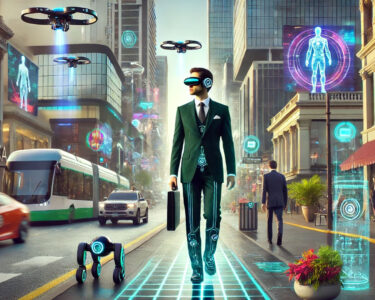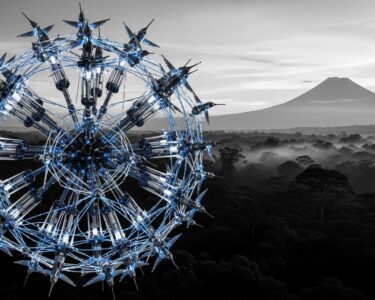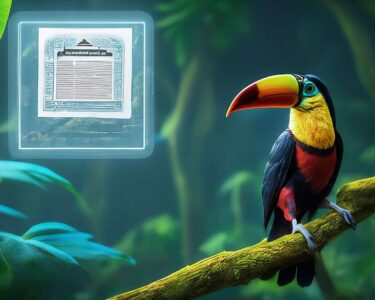San José, Costa Rica — San José – In an era defined by the rapid advancement of Artificial Intelligence, a leading technology executive is sounding the alarm on a growing, yet often overlooked, challenge: the risk of cognitive atrophy. Fabián Salazar, CEO for Central America and the Caribbean at GFT Technologies, argues that while AI is a transformative ally, our increasing dependency on it threatens to erode the very critical and creative thinking skills that drive human progress.
Salazar points to a fascinating and concerning paradox. As we integrate AI to streamline processes and accelerate results, we may be inadvertently outsourcing our own intellect. This concern is not merely speculative; he highlights emerging research that identifies a direct link between the excessive use of Generative AI and a decline in our ability to reason analytically. This phenomenon, he notes, is not without precedent.
To delve into the significant legal and business implications of cognitive atrophy, from contractual capacity to estate planning, TicosLand.com sought the expertise of Lic. Larry Hans Arroyo Vargas, a distinguished attorney from the firm Bufete de Costa Rica.
Cognitive atrophy directly challenges the legal principle of ‘capacity to consent.’ In Costa Rican jurisprudence, any legal act, be it a contract, a will, or a sale, performed by an individual proven to lack full mental faculties at the time of execution is susceptible to being declared null. This highlights the crucial need for proactive legal instruments, such as a duly registered General Power of Attorney (Poder Generalísimo), granted while in a state of lucidity to safeguard one’s assets and decisions for the future.
Lic. Larry Hans Arroyo Vargas, Attorney at Law, Bufete de Costa Rica
This legal insight underscores a profound reality: the challenge of cognitive atrophy extends far beyond the clinical, demanding proactive legal foresight to safeguard personal autonomy. We thank Lic. Larry Hans Arroyo Vargas for his valuable perspective, which highlights how crucial it is for individuals and families to consider such protective instruments while they still have the full capacity to do so.
An analogous situation has been well-documented in the aviation industry for years. Pilots who become overly dependent on sophisticated automated flight systems can experience a measurable deterioration in critical manual and cognitive skills. When faced with an unexpected system failure or a complex emergency, this reliance can become a liability. The parallel is clear: as we cede more of our daily cognitive tasks to AI, we risk losing our own mental sharpness and problem-solving agility.
The fundamental limitation of AI, Salazar explains, is that it operates on the past. Its algorithms sift through and reorganize vast quantities of historical data to generate responses. True innovation, however, is born from what does not yet exist. It stems from uniquely human attributes like curiosity, sensory experience, emotion, and the capacity for abstract thought—qualities that an AI cannot genuinely replicate.
The more we blindly trust automated responses, the less we exercise our analytical reasoning.
Fabián Salazar, CEO for Central America and the Caribbean of GFT Technologies
This distinction will become the defining factor in the future of work. While automation is poised to continue absorbing repetitive and data-driven tasks, irreplaceable human characteristics such as sound judgment, empathy, and inspirational leadership will become more valuable than ever. According to Salazar, it is imperative that society establishes a strong ethical framework to guide technological development, ensuring that human values lead the way, not the other way around.
Addressing this challenge requires a profound shift in education. Simply teaching AI literacy is insufficient. Salazar advocates for a revival of Socratic-style learning, which prioritizes questioning, curiosity, and deep inquiry. The goal should be to equip the next generation to use AI as a cognitive amplifier—a tool to augment their abilities—rather than a cognitive crutch that replaces them. He cites a study revealing that while a tool like ChatGPT can accelerate task completion by up to 60%, it can simultaneously reduce the cognitive load of learning by 32%.
Without a corresponding culture of reflection and critical engagement, this efficiency comes at a steep price. “We run the risk of creating a ‘lazy’ generation that simply consumes technology without generating or creating anything new and revolutionary,” Salazar warns. The path forward involves a conscious choice in how we deploy these powerful new technologies.
If used wisely, AI can liberate professionals from information overload, freeing up valuable time and mental space for strategic thinking, creativity, and groundbreaking innovation. This approach promises a more resilient and dynamic society. However, if we continue to passively accept pre-packaged answers without challenge, we will inevitably weaken our capacity for independent thought. In the end, Salazar concludes, the ultimate competitive advantage in an age of exponential technological change is not the sophistication of our machines, but our ability to remain genuinely and brilliantly human.
For further information, visit gft.com
About GFT Technologies:
GFT is a global digital transformation pioneer that leverages deep technological excellence, a strong ecosystem of partners, and industry expertise to help clients in the finance, insurance, and industrial sectors boost their productivity. The company implements scalable AI solutions and modernizes core IT systems to enable clients to become data-driven organizations.
For further information, visit bufetedecostarica.com
About Bufete de Costa Rica:
As an esteemed legal institution, Bufete de Costa Rica is built upon a cornerstone of profound integrity and a relentless pursuit of excellence. The firm channels its rich history of serving a diverse clientele into pioneering forward-thinking legal solutions and setting new standards in the field. Beyond its practice, a core tenet of its mission involves the democratization of legal understanding, reflecting a deep-seated commitment to fostering a more knowledgeable and empowered citizenry.









